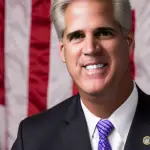For the first time, the producers of President Biden's 10 most expensive pharmaceuticals have agreed to negotiate Medicare prices. The White House announced that pharmaceutical companies had until October to determine whether to participate in President Biden's tax and climate legislation's negotiation program. Companies choose to participate in Medicare rather than leave.
President Biden praised the drugmakers' decision, saying it will help seniors get the best deals. Despite the U.S. Chamber of Commerce's legal challenge, the White House confirmed that high-cost medicine producers for arthritis, diabetes, Crohn's disease, and cancer have consented to join.
Other cases against the program are pending, notwithstanding the U.S. Chamber of Commerce's failure. The pharmaceutical industry and many congressional Republicans worry that the Medicare negotiating program equates to government price-setting and could hamper drug development innovation. However, President Biden and his allies believe Medicare's prescription price negotiations prioritize patient well-being over corporate profits.
The selected pharmaceuticals, which are vital to millions of Medicare seniors, have little competition and account for much of the Part D prescription drug benefit program's federal spending. The first round of negotiated prices will take effect in 2026, with conversations continuing this year and next. Fall 2024 will see final prices, just before the next presidential election.
The Congressional Budget Office estimates that the drug-negotiation program will save taxpayers $100 billion through 2031, but detractors say it may delay drug release by 1%. Advocates say it will lower seniors' out-of-pocket costs and possibly lead to employer plan-drug manufacturer negotiations, but the details remain unknown. Eliquis, Januvia, Enbrel, and Novo Nordisk insulins were chosen for the early negotiations.
In conclusion, President Biden's Medicare negotiating program forced pharmaceutical companies to negotiate prices for 10 expensive pharmaceuticals, a major healthcare policy accomplishment. These negotiations could affect drug prices, patient costs, and the pharmaceutical sector, therefore they will be widely followed. Additionally, their outcome may influence the following presidential election.




